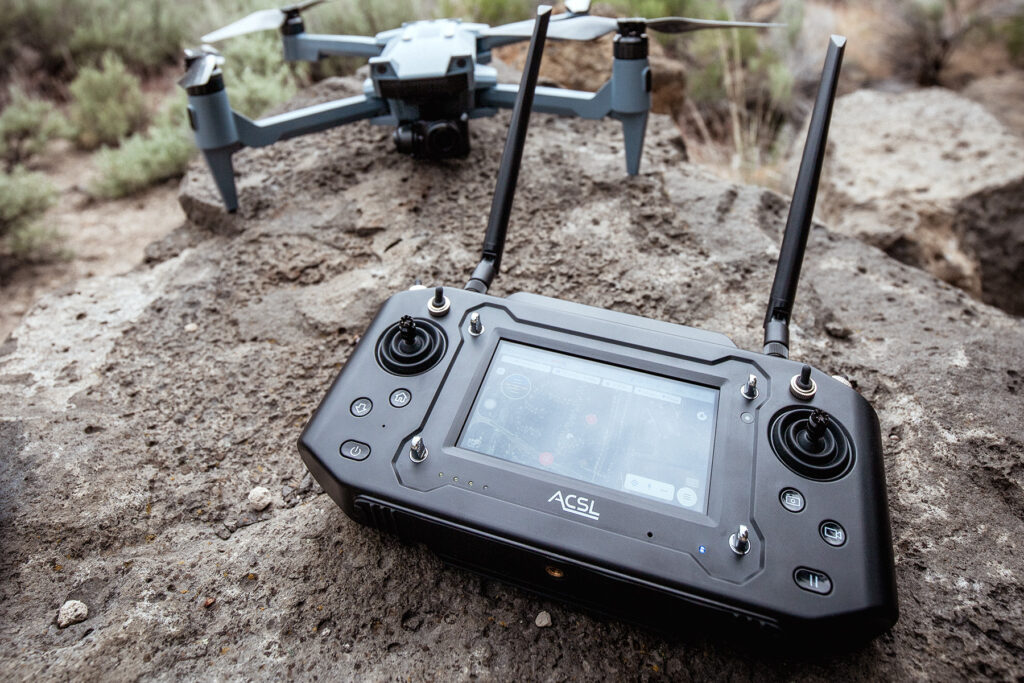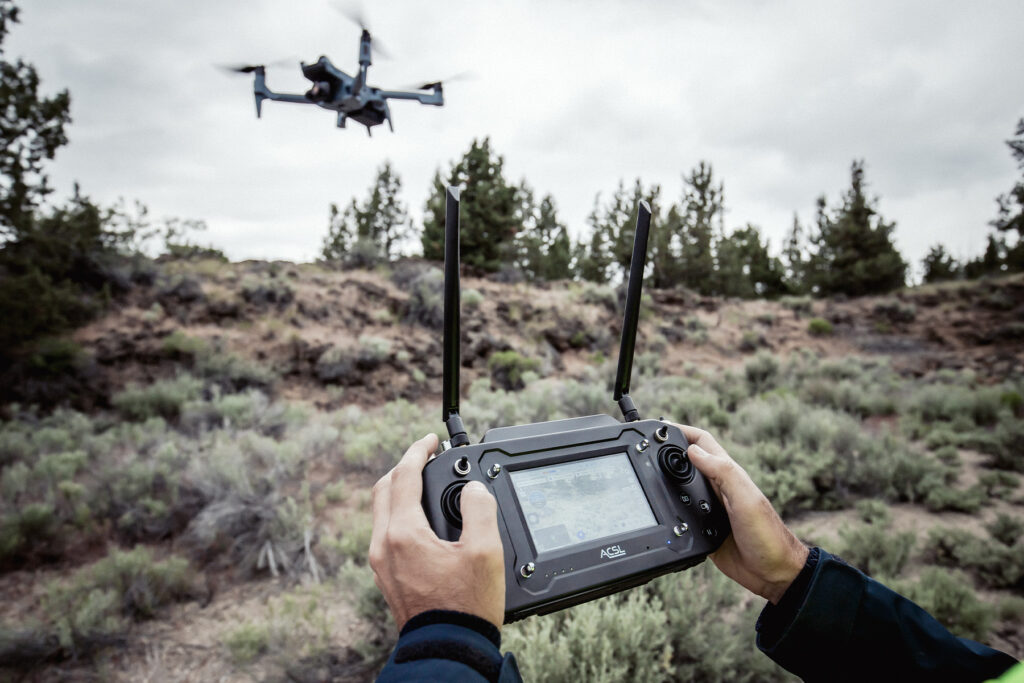New smart controller, TENSO, aims to increase efficiency for operators in the field with rugged design, integrated HD display, and intuitive user interface
SOTEN has rolled out significant performance improvements since initial launch with more upgrades in the roadmap
Santa Clara, California – July 25, 2024, – ACSL, Inc (ACSL), the leading Japanese drone maker, is pleased to announce the release of its new smart controller, TENSO, as well as significant upgrades to its flagship SOTEN drone and future platform enhancements.
The TENSO smart controller was designed to make flight ops easier and more efficient when using SOTEN out in the field. Similar to the standard SOTEN controller, TENSO uses an AES256 encryption communication protocol between it and the drone, the same protocol used by the US government for classified information. This makes TENSO ideal for more sensitive drone operations. TENSO was designed for working in challenging climates and scenarios. Its robust and durable construction has a recommended operating temperature range from 14°F to 104°F and is dust and splash resistant with an IP43-rating. Weighing in at 2.3lbs and with 3 hours of battery life, TENSO is both highly portable and functional.
“We know that having a dedicated smart controller makes a significant difference in the ease of use, efficiency, and performance when working in the field,” said Cynthia Huang, CEO of ACSL, Inc. “TENSO is a welcome addition to our lineup as we expand the SOTEN footprint in North America, bringing on more customers seeking a robust ecosystem that matches their needs.”
Usability was prioritized when designing TENSO and the user interface is clean, simple, and easy to understand. The 5” display offers a 1080p resolution and up to 1000 nits of brightness, ideal for a wide range of scenarios including direct sunlight. The maximum 2.5 mile operating range1, combined with 2.4 GHz operating frequency and WiFi and LTE compatibility, allows for extended and reliable connectivity. Any combination of up to three standard and smart controllers can be simultaneously linked to a SOTEN during live operations.
TENSO will be available for purchase in September for the price of $2800 USD and as part of select SOTEN operation ready bundles. To find an authorized dealer visit ACSL’s dealer locator page.
1 Always follow local laws and regulations when operating a drone.
Since SOTEN units entered the US market earlier this year, ACSL has spent extensive time out in the field with strategic partners and early adopters including large utilities like Ameren and New York Power Authority as well as leading nation-wide drone service providers like Firmatek. ACSL has aggressively focused R&D efforts to incorporate US market feedback resulting in several iterations of updates to SOTEN.


Key upgrades include
Reduced Video Latency:
Real-time video latency has been reduced 25%, improving the viewing experience for operators.
Customizable Gimbal Control:
New modes and tunable parameters allow pilots to customize gimbal movement according to their input preferences. Additionally, gimbal speed now adjusts automatically based on zoom level for more precise control.
Direct Exposure Control:
Gives pilots, especially those flying inspection missions, the ability to quickly adjust image exposure to reveal details of objects that are hidden in shadows or obscured by a bright background.
Universal Compatibility:
Upgraded the standard controller’s electronics to support a wider range of Android devices.
US Remote ID Compliance:
The SOTEN drone’s firmware is now fully compliant with US remote ID regulations, as accepted by the FAA.
Looking at the roadmap ahead, ACSL’s Global CTO Dr. Chris Raabe says “ACSL is committed to continuous improvement and innovation. We have a humble and dedicated R&D team that earnestly considers every piece of feedback and enthusiastically strives to provide a better product.”
Upcoming improvements include
- Expanding line up of swappable payloads
- Additional countermeasures against camera vibration
- A dual-band (2.4 GHz and 5.8 GHz) radio link for improved robustness in noisy environments.
- Automatic continuation of mapping missions following a battery swap.
- Capability to monitor and control the aircraft via LTE cellular network.
- RTK module add-on for centimeter-level positional accuracy
- Further real-time video latency reduction
About ACSL
ACSL is the largest Japanese drone maker, renowned for its innovation and commitment to quality. With a focus on delivering advanced, reliable, and user-friendly drone solutions, ACSL continues to set industry standards and exceed customer expectations. ACSL offers a variety of different drone systems including the flagship SOTEN drone. ACSL Inc. is the US subsidiary of ACSL.
For more information, please visit acsl-usa.com or contact Press@acsl-usa.com.
